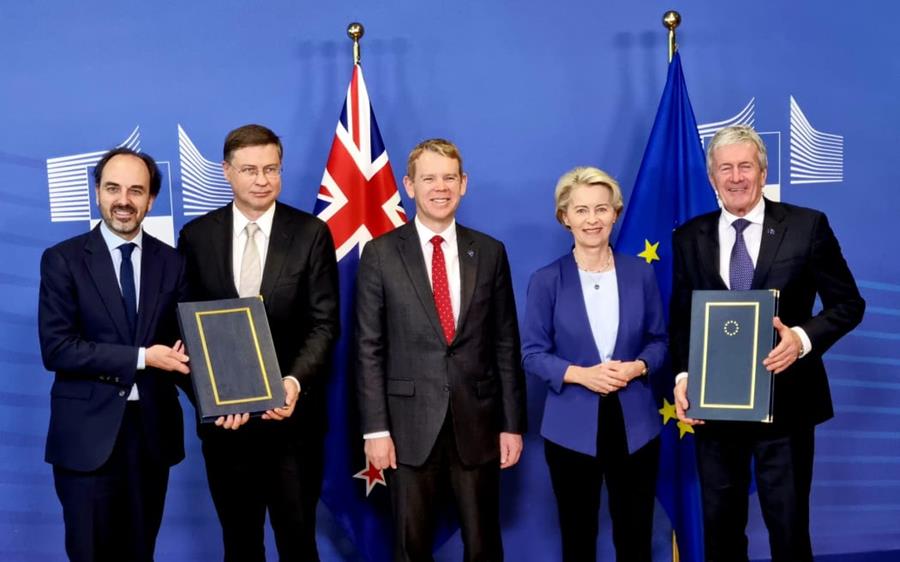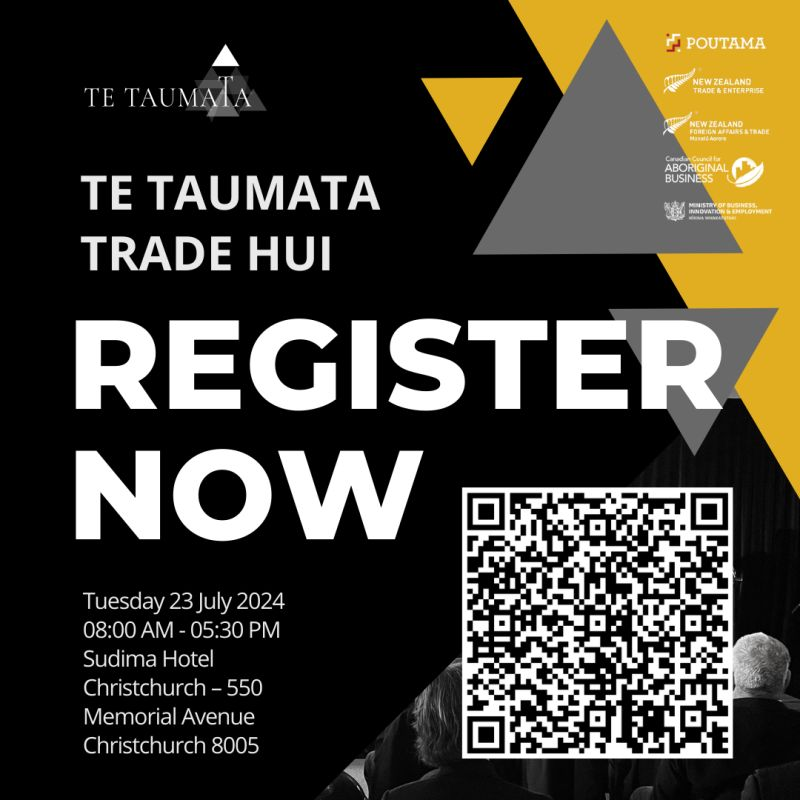Kia whakairia te tapu, kia wātea ai te ara!
The announcement overnight that the NZ/EU Free Trade Agreement (FTA) has been signed will be celebrated by Māori businesses and whānau across Aotearoa, says Te Taumata chair, Chris Karamea Insley.
When it comes into effect (expected in the first half of 2024) the NZ/EU FTA unlocks a combined market with a population of almost 450 million people across 27 member states, including three of New Zealand’s top 20 trading partners – Germany, the Netherlands and France.
With the EU currently New Zealand’s fourth largest trading partner, the new FTA puts Māori export businesses on a fast-track to greater access new markets, customers and opportunities in the $28 trillion combined economy.
From today, 91% of New Zealand’s current trade will be duty free, and within seven years this will increase to 97%. It also sees the increasing removal of quota access and high tariffs, particularly with dairy and beef.
Critically, in a first for a European trade agreement, the FTA includes a chapter that specifically acknowledges and supports Māori trade, designed to advance Māori businesses, economic aspirations and ultimately, whānau wellbeing.

“The word ‘game changer’ gets used a lot these days, but it couldn’t be more appropriate in this case,” says Karamea.
“The significance of this agreement, the size of the economy it opens up for Māori exporters, and therefore the outcomes it is set to derive for whānau across the country cannot be over-estimated. The ratification of this FTA is a literal gamechanger for us all.”
The FTA’s ‘Māori Trade and Cooperation’ chapter acknowledges Te Tiriti as New Zealand’s foundation document and references concepts such as Te Ao Māori, Mātauranga Māori, Tikanga Māori, Kaupapa Māori, Tāonga and Wāhine Māori to achieve wellbeing.
“In just one example of how this chapter supports Māori trade, the FTA defines ‘Mānuka’ exclusively as the tree grown here in Aotearoa, as well as its derived products such as honey and oil.
“It defines manuka as being culturally important as a taonga and traditional medicine – a point of difference that is completely unique to us and now protected by an FTA. This is just one example of how Māori interests are both protected, and set to grow significantly, under this trade deal.”

Around 50,000 Māori are currently employed in export industries, including agriculture, horticulture, seafood, wine, digital, technology, tourism and more.
“Māori businesses, including iwi and hapū trusts, are a growing force in the New Zealand economy and FTAs like this one give Māori unique opportunities to maximise our authentic points of difference.
“Ensuring outstanding outcomes for Māori businesses sits at the heart of our Te Taumata kaupapa and we will continue to advocate and expect improved opportunities for Māori across all aspects of the economy.
I want to acknowledge the leadership role of Nina Obermaier, EU Ambassador to NZ and her team and Vangelis Vitalis, NZ’s lead trade negotiator and his team.
“Vangelis has become a deeply respected person across Maoridom for both his deep knowledge of international trade and negotiations, and for the way in which he has invited and accommodated the interests of Maori into this groundbreaking agreement for both Maori and all New Zealand”
“Today is a day for celebration, but tomorrow the hard work will start as we bring this FTA to life and make the benefits a reality for Māori across Aotearoa.”
Kia tūruki whakataha ai!
Kia tūruki whakataha ai!
Haumi e, Hui e, Tāiki e!


